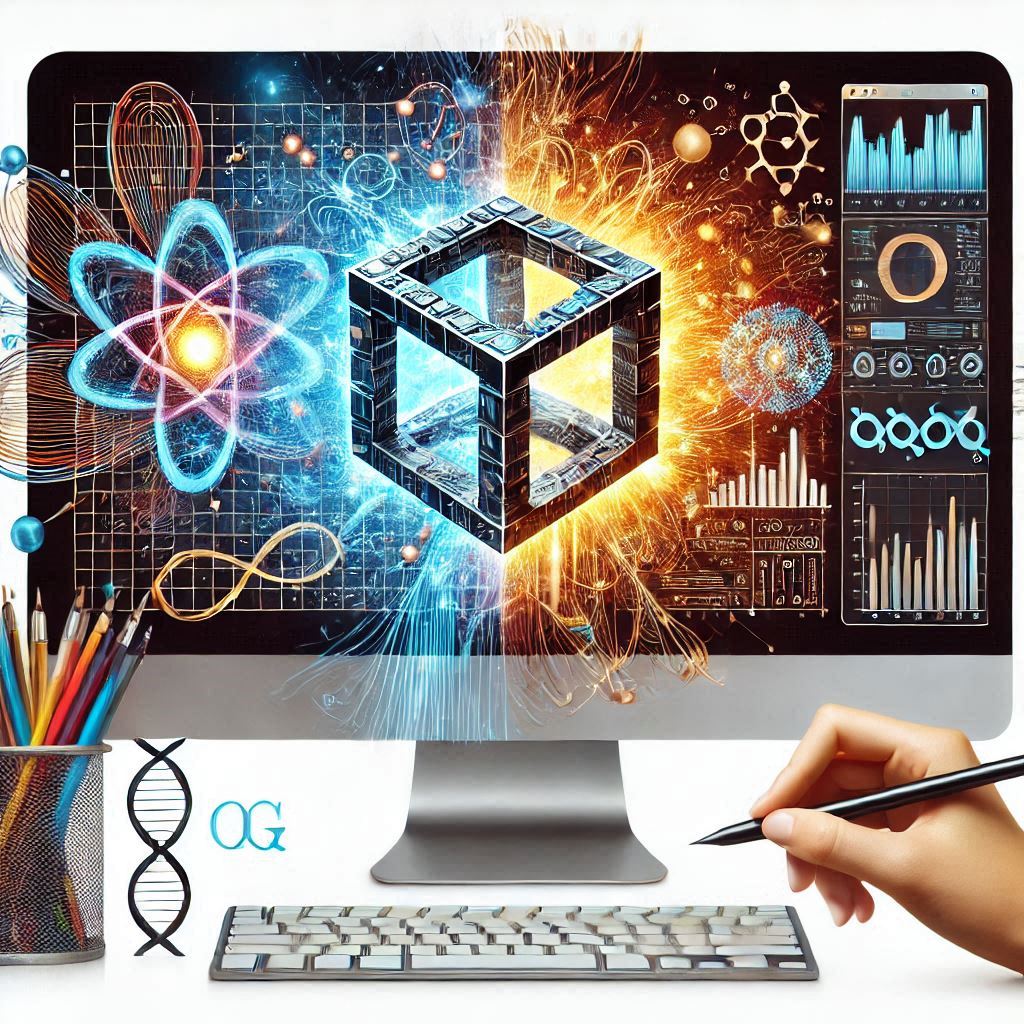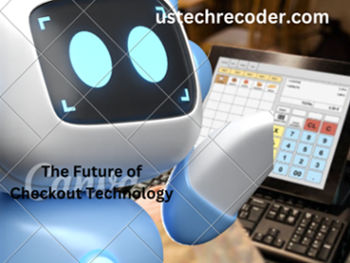COMPUTING
Top Programming Languages for Beginners: Unlock Your Coding Potential Today
Learn the top programming languages for beginners like Python, JavaScript, and Scratch to kickstart your coding journey easily and confidently.
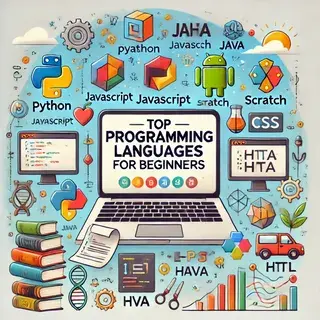
Top Programming Languages for Beginners
Problem:
Self-learning at the expense of superior technical expertise seems to be highly paranoid. Given the vast array of programming languages, it may seem overwhelming, but it would be like venturing into a universe without a map when unsure of where to begin. After all of this, it would be very simple to become demotivated and frustrated before you even begin.
Agitation:
However, as they say, choosing a poor programming language could make your trip worse. Imagine having to struggle with tools meant for the difficult learning curve or spending weeks figuring out where semicolons belong. For the most brilliant minds on the globe, programming is an activity that will kill you if you learn it incorrectly.
Solution:
For this reason, we have created this guide to help novice programmers identify the most popular programming languages. This article will assist you in selecting the appropriate language to begin your coding career, whether you’re building websites, analyzing data, or creating your own apps. With step-by-step instructions and useful advice, you’ll feel comfortable enough to begin coding practically instantly. Let’s dive in!
Why Should You Learn Programming?
The future will hold programming as a skill where everything will develop software to create a website to applications which change lives. Whether looking for jobs in tech or trying to solve a problem or just curiosity about how apps and websites function, this is all opened up by learning to code.
- Career Advancement: Skilled programmers are in high demand across all industries.
- Problem-Solving Ability: Learning to code helps you deconstruct difficult issues into smaller, more doable steps.
- Empowerment: You can make your thoughts a reality by using programming.
What Makes a Language Beginner-Friendly?
Not all programming languages are ideal for beginners. A beginner-friendly language typically has:
- Simple Syntax: A coding structure that is simple to comprehend.
- Large Resources: An abundance of community assistance, lessons, and guides.
- Flexibility: Adaptable to a range of jobs, including app development, automation, and web development.
Let’s dive into the top programming languages for beginners and see what makes them stand out.
1. Python – The Perfect Starting Point
Python is the most popular due to its ease of use and adaptability. Beginners will find it easier to understand basic programming principles because of their grammar, which is remarkably similar to that of normal English. Numerous domains, such as data research, web development, automation, and artificial intelligence, heavily rely on Python.
Benefits of Learning Python
- Ease of Use: Rather than battling with complex code, Python’s clear and simple syntax allows you to concentrate on mastering logic.
- Multipurpose: Python can be used for a variety of activities, including data analysis, task automation, and website creation.
- Friendly Community: Python offers a plethora of beginner-friendly tools, including video courses and forums.
2. JavaScript – Bringing Websites to Life
Anyone interested in web development should learn JavaScript. Almost all interactive features on websites, including animations and real-time updates, are powered by it. JavaScript is special because it lets you see the results of your work in a browser right away.
Why JavaScript is Great for Beginners
- Interactive Learning: Without installing any additional software, you can play around with JavaScript directly in your browser.
- Extremely Versatile: You can create websites, mobile apps, and even games with JavaScript if you understand the fundamentals.
- Global Demand: In the tech industry, knowing JavaScript is a valuable talent.
3. Scratch – Fun and Visual Programming
For complete novices, especially younger students, Scratch is the best option. Because of its block-based methodology, which eliminates the need to enter code, anyone can use it and enjoy it.
Why Scratch Stands Out
- Visual and Captivating: You develop programs by dragging and dropping colorful blocks rather than writing code.
- Excellent for Both Children and Adults: Scratch is made to make learning fun for all ages.
- Fast Results: Produce animations, tales, and games quickly.
4. Java – A Strong Foundation for Advanced Learning
Java is a flexible language that is frequently used in the development of Android apps, enterprise programs, and even video games. Despite having a more difficult learning curve than Python or Scratch, its methodical approach aids novices in comprehending important programming ideas.
Why Java is Worth Learning
- Broadly Applicable: Java can be utilized for a variety of tasks, including large-scale systems and app development.
- Teaches fundamental concepts: Gaining a solid grasp of object-oriented programming is possible through mastering Java.
- Job Market Advantage: There is a great need for Java developers, particularly those working on Android.
5. HTML and CSS – Essential Skills for Web Development
If you’re interested in creating websites, HTML and CSS are the first tools you’ll need. HTML provides the structure for a webpage, while CSS adds style and design.
Key Advantages of HTML and CSS
- Beginner-Friendly: Both are ideal for novice programmers because they are easy to master.
- Instant Feedback: The outcomes of your code are displayed on a webpage right away.
- Foundation for Web programming: They are crucial first steps in acquiring more sophisticated web programming abilities.
6. C – The Classic Language
C is one of the oldest programming languages, often referred to as the “mother of programming.” While it’s more technical, it provides a strong foundation for understanding how programming works at a deeper level.
Benefits of Learning C
- Creates a Solid Foundation: C has impacted many contemporary languages, including Python and Java.
- High Performance: C is utilized in embedded and operating systems, among other applications where speed is essential.
- Problem-Solving Ability: Studying C makes you consider the hardware side of computers.
How to Choose the Right Language?
With so many great options, you might wonder where to start. Follow these steps to make the best choice for your goals:
- Establish Your Objective: What do you hope to accomplish? Is it app development, automation, or web development?
- Begin with the basics: To gain confidence, start with a simple language like Python or Scratch.
- Practice Every Day: With constant work, programming is a skill that gets better.
- Work on Projects: Put your knowledge to use by creating simple projects, such as a calculator or a website for your personal portfolio.
FAQs – Frequently Asked Questions
1. What is the easiest programming language to learn?
Because of its easy-to-understand syntax, Python is sometimes considered the most beginner-friendly language.
2. How long does it take to learn a programming language?
The amount of time varies based on how committed you are and how difficult the language is. After a few weeks of regular practice, you can begin creating projects in beginner-friendly languages like Python or Scratch.
3. Do I need a degree to learn programming?
No, A degree is not required. A lot of people use tutorials, online courses, and practical experience to learn programming.
4. Can I learn multiple programming languages at once?
It is preferable to begin with one language, learn the fundamentals, and then progress to others. It can be perplexing to attempt to learn more than one language at once.
5. Are programming languages free to learn?
Numerous free learning resources are available online, and the majority of programming languages are free to use.
6. Which language should I learn for web development?
For web development, HTML, CSS, and JavaScript are necessary. After mastering these, you can investigate backend languages like Python or PHP or frameworks like React.
7. Is programming only for tech jobs?
Not at all! Programming skills are valuable in many fields, including marketing, education, finance, and more.
Why You Should Start Today
The process of learning a programming language is one of personal development and exploration. You get closer to comprehending the potential of technology with every line of code you create. There has never been a better moment to begin, whether your goal is to change careers, create something innovative, or just pique your interest.
Be confident as you take that first step. Remember that every seasoned programmer was once a novice just like you, so start with a language that fascinates you. One line of code at a time, you hold the power to shape the future.
COMPUTING
Why a Computational Biology Masters Will Catapult Your Career Further
Discover everything about computational biology masters programs, career opportunities, top universities, and how to succeed in this rapidly growing field.

Pursuing a computational biology masters degree opens doors to one of the most exciting and rapidly growing fields in modern science. The program further uses computer science, mathematics and biology to address complicated biological issues using state-of-the-art tools. Whether you’re passionate about discovering new drugs, understanding genetic diseases, or analyzing massive datasets from genome sequencing projects, a computational biology masters provides the perfect foundation for a rewarding career at the intersection of technology and life sciences.
What Makes Computational Biology Masters So Powerful
Computational biology masters programs have gained tremendous popularity because they prepare students for high-demand careers in biotechnology, pharmaceuticals, healthcare, and research institutions. Additionally, college graduates in biological sciences tend to make much more money from the start, since their starting salaries exceed $75,000 each year.
Recently, the amount of biological data being produced has caused the field to grow quickly. For example, the Human Genome Project needed 13 years to finish, whereas technology now can do the same job in only hours. Therefore, we urgently require experts who can interpret and use biological information.
Dr. Jennifer Martinez, who completed her computational biology masters at Stanford in 2019, shares her experience: “I started as a biology major who was intimidated by coding. Still, as I progressed, I gained more self-assurance in programming and learned a lot about biology. Now, I design algorithms used by a leading biotech company to recognize possible cancer treatments.
Core Skills You’ll Develop in Computational Biology Masters
Jobs in Programming and Software Development
Students in computational biology masters programs typically learn multiple programming languages essential for biological data analysis. Because they perform well in statistical analysis and data visualization, Python and R are the languages that coders use the most. Many students also get the chance to do the following:
• Using Python for both programming and machine learning
• Using R helps with both statistics and bioinformatics.
I am working on the SQL portion of database management.
Unix/Linux based programs for large-scale data processing
• MATLAB is useful for mathematical modeling.
The field of statistical analysis and machine learning.
Furthermore, computational biology masters students develop strong statistical foundations necessary for analyzing biological experiments and large-scale datasets. Machine learning techniques let students predict how proteins are constructed, choose important biomarkers for diagnosing diseases and tell the difference between various cell types.
The integration of biological knowledge.
Experience in programming and research methods is important for computational biologists, but knowing biology is just as necessary. For this reason, programs usually offer classes on:
• Topics include molecular biology and genetics
• The study of cells and biochemistry is part of the discipline.
• Evolution and the study of how different organisms spread geographically
Studies have been done through systems biology.
Step-by-Step Guide to Choosing Your Computational Biology Masters
Step 1: Think About Your Personal Experience and What Interests You
Start by looking at what skills and education you have at present. Most computational biology masters programs accept students from diverse backgrounds, including biology, computer science, mathematics, physics, and engineering. Alternatively, a certain entry course may be required for a given type of program.
Allow yourself to recognize which interests you most about computational biology. Are you curious about learning about drug discovery, personalized medicine, evolutionary biology or environmental genomics? Discovering what you want to study will help you decide the right program.
After that, find information about the courses and specialties in the program.
Next, investigate different computational biology masters programs to find those that align with your goals. A variety of computer programs are available that either highlight bioinformatics and data analysis or are centered on using math or machine learning.
It is important to think about:
• What courses should I complete before applying?
• It usually takes 1-2 year to finish a program
• The difference between having a thesis and enrolling only in coursework
• Explore available research activities and do lab rotations
• The free enterprise helps by signing up for internship programs and industry sponsorships
Step 4: Assemble Your Application Requirements
After that, make sure you start applying in advance. Most computational biology masters programs require:
Records from each school previously attended
• Scores from the GRE (unless it’s not required by your chosen graduate program)
• Supports from teachers or leadership staff
• A personal statement detailing your reasons and the field you wish to enter
• Resume or CV that shows relevant work experience
Apply for both scholarships and research funding in Step 4.
It’s important to find out about research funding opportunities as soon as you begin the application process. Many computational biology masters students receive financial support through:
• Being an assistant to faculty members in research
Many undergraduate students will assist teachers as part of a teaching assistantship program.
• NSF offers Graduate Research Fellowships
• Grants and paid experiences furnished by the industry
Top Universities Offering Exceptional Computational Biology Masters
The university is known as Carnegie Mellon University.
Carnegie Mellon’s computational biology masters program is widely recognized as one of the best in the world. The courses in the program cover both theory and hands-on experience, with students completing research from the start.
University of California at San Diego
The program is known for its good relationships with the biotechnology businesses located in San Diego. Furthermore, students take advantage of internship roles at companies such as Illumina, Qualcomm Life Sciences and several biotech startups.
This work was conducted by Johns Hopkins University.
Johns Hopkins offers a unique computational biology masters that combines rigorous academic training with access to world-class medical research facilities. During their studies, students regularly cooperate on research on cancer and at-risk populations.
MIT
The program at MIT centers on systems biology and using computers to explore biological networks. Additionally, the universities provide state-of-the-art tools and allow students to work beside experienced experts in their field.
Career Opportunities After Your Computational Biology Masters
Bioinformatics Scientist
Graduates with a computational biology masters often work as bioinformatics scientists at pharmaceutical companies, biotech firms, or research institutions. They look through genomic information, design algorithms for discovering new drugs and make programs for biology studies.
Sarah Chen, who graduated from her computational biology masters program in 2020, landed a job at Genentech working on cancer immunotherapy research. She says her degree gave her the right mix of biology experience and computer skills. I review patient information constantly to choose the most likely successful therapies.
Doctor in Healthcare
More and more, the healthcare industry looks for professionals who can interpret data to help improve patients’ health. Computational biology masters graduates are well-positioned for these roles because they understand both the technical and biological aspects of healthcare data.
Doctoral Research and Programs
Many students use their computational biology masters as a stepping stone to doctoral programs. Students in a master’s program conduct valuable research and use it to confirm or modify their research preferences for a possible future PhD.
Biotechnology Consulting
Consulting firms specializing in life sciences seek professionals with computational biology masters degrees to help biotech companies solve technical challenges and make strategic decisions about research directions.
Useful Guidelines to Succeed in Your Master’s Program
Make Sure to Learn Programming Core Skills Early
Start learning programming languages like Python and R before beginning your computational biology masters program. Codecademy, Coursera and edX have excellent first-time courses that can interest you in coding.
Become involved in the research environment.
Besides, visit science conferences, join groups such as the International Society for Computational Biology and join forums online where computational biologists talk and cooperate.
Work on Your Ways of Communication
Moreover, good computational biologist are able to describe in detail the complex issues they study to a variety of readers. Work on delivering your work skillfully and improve in writing for many types of readers.
Work with Real-World Issues
Contact biotech, pharmaceutical or research companies to apply for internships. Work-based learning supports what you study in school and helps you gain contacts in your field.
Overcoming Common Challenges in Computational Biology Masters
Integrating Biology with Computer Science
Many students are worried they do not have enough background knowledge. However, most computational biology masters programs are designed to help students from different backgrounds succeed. Use the opportunities of extra classes, support groups and meeting teachers out of class to address your difficulties.
Controlling Too Much Information
Within the field of computational biology, new methods appear all the time. Start with getting proficient in basic skills rather than trying to know all new technologies. You should also create ways to keep up with changes in literature and technology.
Relating Learning to Real World Cases
While what you learn from books is useful, it’s even more important to work with actual datasets and problems. Look for research projects that require you to use what you have learned in class.
Future Trends Shaping Computational Biology Masters Programs
Integrating artificial intelligence in institutions.
More databases now rely on artificial intelligence and deep learning to study biological information. Learning applications of neural networks is focused on predicting how proteins fold and analyzing medical images.
The science of Single-Cell Biology
The study of individual cells has greatly changed how biology research is done. Consequently, computational biology masters programs now include coursework on single-cell sequencing analysis and computational methods for understanding cellular heterogeneity.
Unique uses of Personalized Medicine
As healthcare shifts towards treatments that match each patient best, programs now center on using numbers to analyze patient materials and predict how they will react to different treatments.
Making Your Decision: Is Computational Biology Masters Right for You?
A computational biology masters degree is ideal for students who enjoy solving complex problems, working with large datasets, and contributing to scientific discoveries that could improve human health. If you’re interested in biology and technology or even biology and programming, bioinformatics is right for you.
Do not make rushed decisions regarding your future goals in this industry. Although jobs in computational biology are available, staying successful calls for continuous education and the ability to handle new technologies. Anyone in the field who keeps learning and is interested will be rewarded.
Remember that a computational biology masters opens doors to diverse career paths, from drug discovery at pharmaceutical companies to developing new diagnostic tools at medical device firms. Since the discipline is interdisciplinary, you will always have many options for the work you can do.
The future of biology is computational, and professionals with computational biology masters degrees will be at the forefront of the next generation of scientific breakthroughs. If your goal is to cure illnesses, decipher evolution or create new ways of using biotechnology, the knowledge gained with this degree helps you achieve this.
COMPUTING
Lenovo V15 Business Laptop Review: Affordable Efficiency Meets Everyday Power
Reliable and affordable, the Lenovo V15 Business Laptop offers fast performance for everyday productivity with excellent value for money.
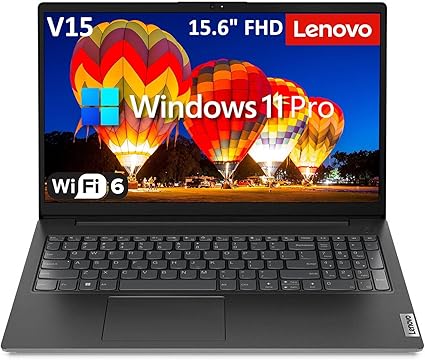
✨ Overview
If you’re looking for a cost-effective laptop that doesn’t compromise on performance, the Lenovo V15 Business Laptop delivers a reliable solution for entrepreneurs, students, and everyday users. Designed to balance processing speed, multitasking capability, and durability, this model targets functionality over flashy extras — and it succeeds with flying colors.
Whether you’re analyzing spreadsheets, drafting reports, managing emails, or attending virtual meetings, this machine proves that budget-friendly computing can still be powerful.
🔍 Specifications at a Glance
| Component | Details |
|---|---|
| Display | 15.6″ Full HD (1920×1080), Anti-Glare |
| Processor | Intel Dual-Core Processor (Turbo Boost Supported) |
| RAM | 16GB DDR4 (expandable) |
| Storage | 256GB PCIe NVMe SSD |
| Graphics | Integrated Intel UHD Graphics |
| Operating System | Windows 11 Pro |
| Connectivity | WiFi 6, Bluetooth 5.2 |
| Ports | USB 3.2, USB 2.0, HDMI, RJ-45 Ethernet, Type-C |
| Keyboard | Full-size with Numeric Keypad (No Backlight) |
| Weight | Approximately 4.1 lbs (lightweight design) |
This configuration makes it ideal for remote work, light creative tasks, online classes, and business productivity.
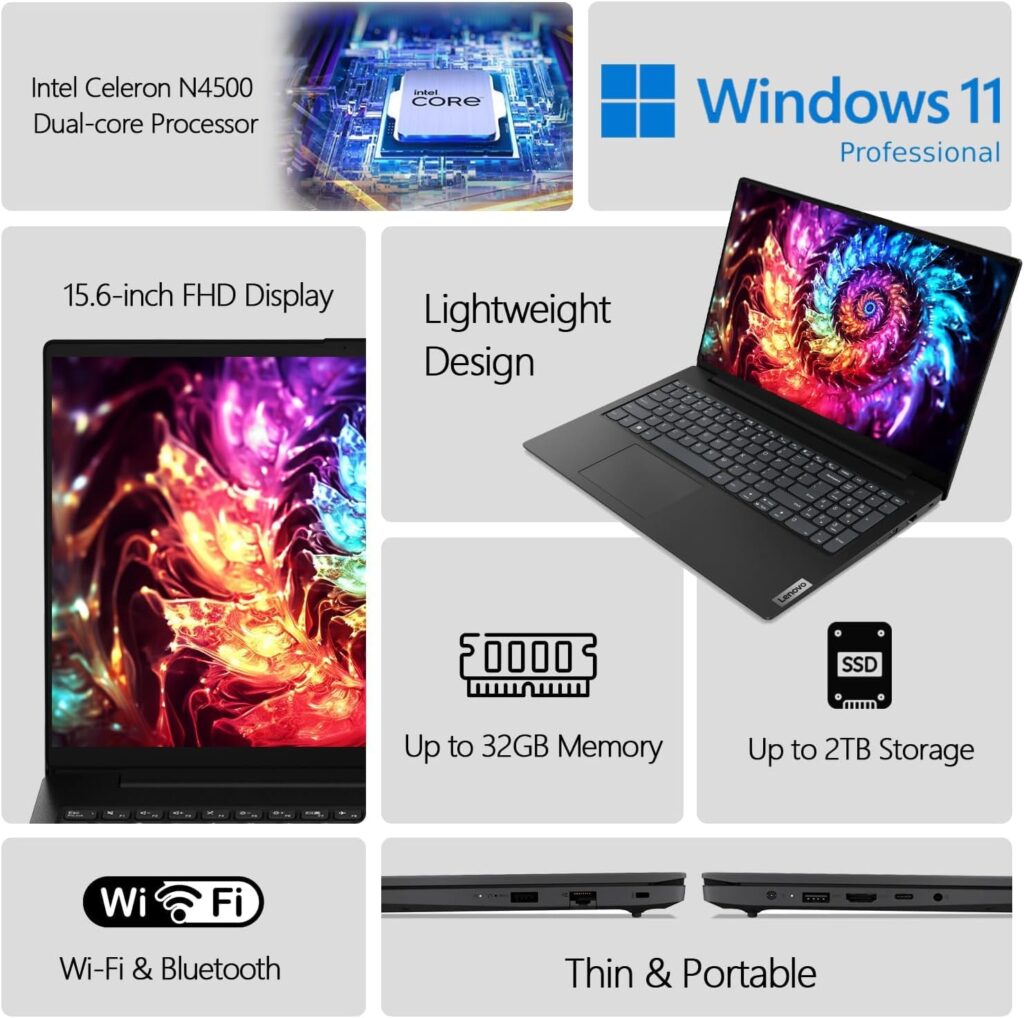
💬 User Feedback: A Merged Review Summary
After analyzing dozens of verified purchase reviews, several themes emerged — shedding light on what users genuinely love and what could use improvement.
🟢 Most Praised Features Lenovo V15 Business Laptop:
- Smooth Multitasking: Users frequently mention how easily the laptop handles dozens of Chrome tabs, office apps, and background software.
- Quiet Operation: Thanks to efficient cooling, the fan rarely kicks in audibly, offering a calm and uninterrupted workflow.
- Fast Boot Times: With the PCIe SSD, the system powers up in seconds — no waiting around.
- Excellent Value: Customers highlight this laptop as “great bang for the buck,” especially for basic business tasks and schoolwork.
🔴 Most Criticized Features:
- Dim Display: The screen, while sharp, lacks vibrant color contrast and is not ideal for multimedia editing.
- No Keyboard Backlight: A common frustration for users who often work at night or in dimly lit spaces.
- Mediocre Battery Life: Expect around 4–5 hours with mixed usage; users suggest keeping the charger handy.
✅ Pros and ❌ Cons
✅ Pros:
- Affordable yet dependable
- Modern wireless connectivity
- Ample RAM for multitasking
- Fast SSD with room for expansion
- Pre-installed Windows 11 Pro
❌ Cons:
- No backlit keyboard
- Display lacks color depth and brightness
- Battery life could be improved
- Not suitable for gaming or heavy graphics use
🔎 Expert Verdict
🎯 Is It Worth Buying? Lenovo V15 Business Laptop
Absolutely, with a caveat.
The Lenovo V15 is a thoughtfully designed workhorse for those who need basic computing without breaking the bank. While it doesn’t cater to gamers or content creators, it’s an excellent companion for students, office professionals, and freelancers. If you prioritize productivity, reliability, and portability, this machine delivers consistently.
Verdict:
“The Lenovo V15 is a minimalist’s dream — no frills, just performance where it matters most.”

💡 Alternate Option: Higher Specs for Power Users
If you’re looking for something with more horsepower, especially for multitasking or light content creation, check out this next-level contender:
🔄 Alternative Laptop: Lenovo G3 Business Edition
| Feature | Lenovo V15 | Lenovo G3 Business Edition |
|---|---|---|
| Processor | Intel Dual-Core | Intel Core i7-1195G7 |
| RAM | 16GB DDR4 | 32GB DDR4 |
| Storage | 256GB PCIe SSD | 1TB PCIe SSD |
| Graphics | Integrated UHD | NVIDIA GeForce |
| Keyboard | No backlight | Backlit |
| Display | 15.6″ FHD | 15.6″ FHD with better brightness |
| Price Range | Lower | Higher |
👉 If your workload involves media creation, intensive spreadsheets, or design software, the G3’s extra muscle and backlit keyboard are a worthwhile upgrade.
🛠️ Step-by-Step: Lenovo V15 Setup & Usage Guide
📦 1. Unboxing & Initial Setup
- Remove all components from the box (laptop, power brick, manuals).
- Connect the charger and press the power button.
🌐 2. Windows 11 Pro Configuration
- Choose your region and language.
- Sign in to your Microsoft account or create one.
- Connect to your Wi-Fi network.
🔧 3. System Updates & Drivers
- Go to Settings > Windows Update.
- Install all pending updates, including drivers and security patches.
📦 4. Essential Software Installation Lenovo V15 Business Laptop
- Install tools like Chrome, Office 365, Zoom, etc.
- Use Windows Defender or a trusted antivirus suite for protection.
🔐 5. Backup & Data Safety Lenovo V15 Business Laptop
- Set up OneDrive or Google Drive.
- Enable restore points in System Settings.
✨ Use Cases & Ideal Audience
This laptop is ideal for:
- 🧑💼 Small business owners
- 🎓 Students in college or online learning
- 💼 Remote professionals
- 📊 Basic data analysts and office workers
It’s not ideal for:
- 🎮 Gamers
- 🎨 Graphic designers
- 🖥️ Video editors
Final Thoughts: The Right Tech for the Right Task
In the world of laptops under $400, the Lenovo V15 Business Laptop strikes a careful balance between economy and efficiency. Its performance for office tasks is commendable, and it boasts enough memory and speed for day-to-day usage without freezing or lagging.
If your priorities are performance over presentation and you’re okay with a modest display and keyboard, you’ll find this machine a smart and savvy investment
Want to know about an automotive microphone

COMPUTING
Asus ROG Flow Z13 2025 Review: The Ultimate 2-in-1 Gaming Powerhouse
Discover the Asus ROG Flow Z13 (2025) – a revolutionary 2-in-1 gaming laptop that redefines portability and performance.

Experience unparalleled gaming performance with the innovative Asus ROG Flow Z13 2025, blending portability and power in a sleek design.
Specifications
- Processor: AMD Ryzen AI MAX+ 395WIRED
- Graphics: Integrated Radeon 8060SWIRED
- Display: 13.4-inch touchscreenTechRadar+1TechRadar+1
- Keyboard: Detachable with RGB lightingTechRadar+2WIRED+2TechRadar+2
- Thermals: Vertical component configuration for efficient coolingTom’s Hardware+4WIRED+4TechRadar+4
- Battery Life: Decent for its classWIRED
- Connectivity: Multiple ports including USB-CTom’s Guide+4TechRadar+4TechRadar+4
- Operating System: Windows 11
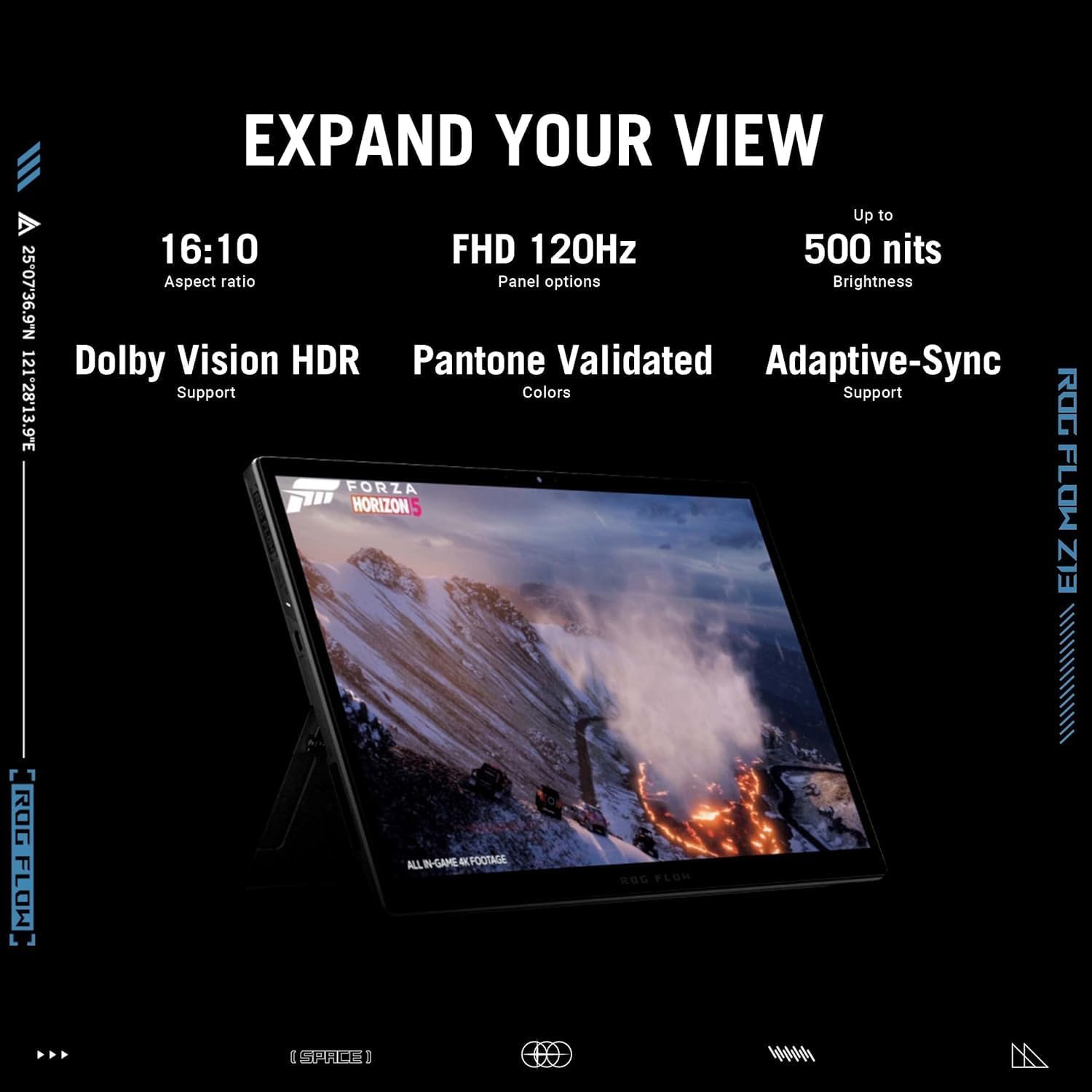
User Reviews Summary
The Asus ROG Flow Z13 (2025) has received praise for its innovative design and performance:WIRED
- Portability: Users appreciate the tablet-like form factor combined with gaming capabilities.
- Performance: The AMD Ryzen AI MAX+ 395 and integrated Radeon 8060S deliver smooth gameplay, even for demanding titles like Cyberpunk 2077.WIRED
- Thermals: The vertical component layout ensures efficient cooling, keeping the device quiet during intense sessions.WIRED
However, some users have noted areas for improvement:
- Price: With a price tag exceeding $2,000, it’s considered expensive by some.
- Limited Configurations: The lack of lower-tier options restricts choices for budget-conscious consumers.WIRED
- Audio and Webcam: Speakers and webcam quality are deemed average.

Pros and Cons
Pros:
- Innovative Design: Combines tablet portability with gaming performance.WIRED
- Efficient Cooling: Vertical layout ensures quiet operation.
- Detachable Keyboard: Offers flexibility for different use cases.
Cons:
- High Price Point: May not be accessible for all budgets.
- Limited Configurations: Few options for customization.
- Average Multimedia Features: Speakers and webcam could be improved.
Final Recommendation
The Asus ROG Flow Z13 (2025) stands out as a trailblazer in the gaming laptop market, offering a unique blend of portability and performance. Its innovative design caters to gamers and professionals seeking flexibility without compromising on power. While it comes at a premium price, the features and performance justify the investment for those prioritizing versatility and cutting-edge design.WIRED

Alternative: Asus TUF Gaming A16
For those seeking a more budget-friendly option, the Asus TUF Gaming A16 is a commendable alternative:LaptopMag
- Processor: AMD Ryzen 7Media Tech Reviews+3Consumer Picked+3TechRadar+3
- Graphics: AMD Radeon RX7700SLaptopMag
- Display: 16-inch with 165Hz refresh rate
- Price: Approximately $699LaptopMag
While it lacks the 2-in-1 design of the Flow Z13, it delivers solid gaming performance at a fraction of the price.WIRED
Setup Guide
- Unboxing: Carefully remove the laptop and accessories from the packaging.
- Initial Setup:
- Attach the detachable keyboard.
- Power on the device.Consumer Picked+3TechRadar+3WIRED+3
- Follow the on-screen instructions to set up Windows 11.
- Driver Updates: Ensure all drivers are up-to-date via the Asus support website.
- Customization:
- Adjust RGB lighting settings using the pre-installed software.WIRED
- Configure performance modes based on usage (e.g., Turbo mode for gaming).
- Game Installation: Install your preferred games and enjoy the immersive experience.
Click here to know more or buy
-

 GADGETS3 months ago
GADGETS3 months agobest travel steamer 2025: Neakasa Magic 1 Vacuum Steamer Review – Worth It?
-
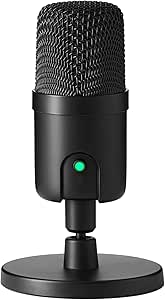
 AUTOMOTIVE3 months ago
AUTOMOTIVE3 months agoAmazon Basics USB Condenser Microphone Review: Affordable Quality for Streamers & Podcasters
-

 TECHNOLOGY2 months ago
TECHNOLOGY2 months agoSteam Data Breach: Revealed How to Safeguard Your Accout
-

 GADGETS4 months ago
GADGETS4 months agoBest Affordable VR Headsets in 2025: Top Picks for Budget-Friendly Immersion
-

 GADGETS6 months ago
GADGETS6 months agoHow to Connect Magic Mouse to Windows 11
-
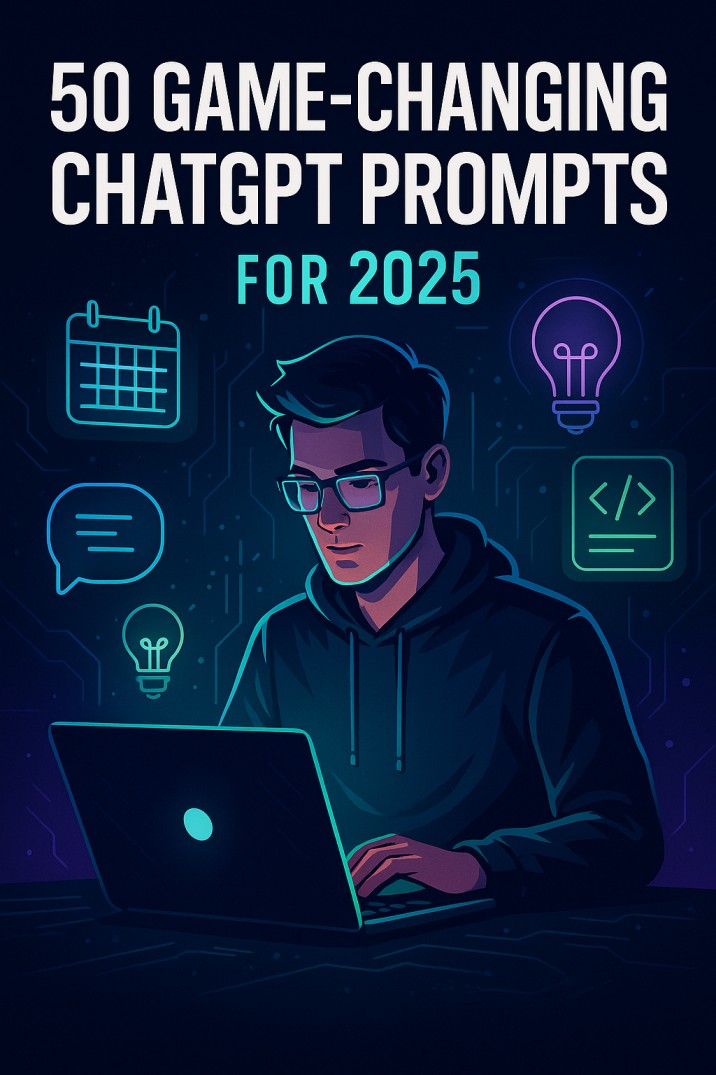
 ARTIFICIAL INTELLIGENCE3 months ago
ARTIFICIAL INTELLIGENCE3 months ago50 Mind-Blowing ChatGPT Prompts You Wish You Knew Sooner (2025 Edition)
-
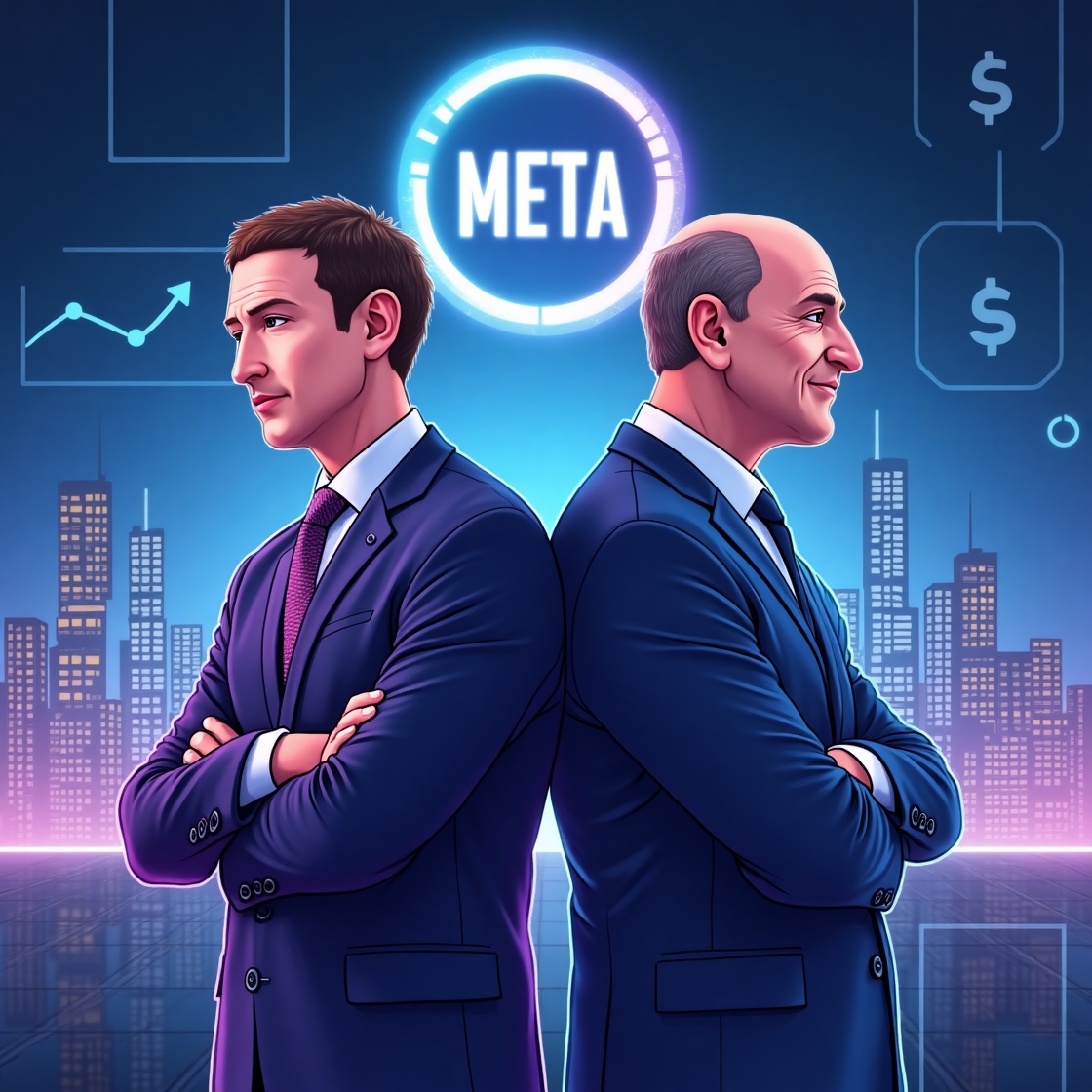
 NEWS1 month ago
NEWS1 month agoMark Zuckerberg Overtakes Jeff Bezos: A Powerful Billionaire Shift
-
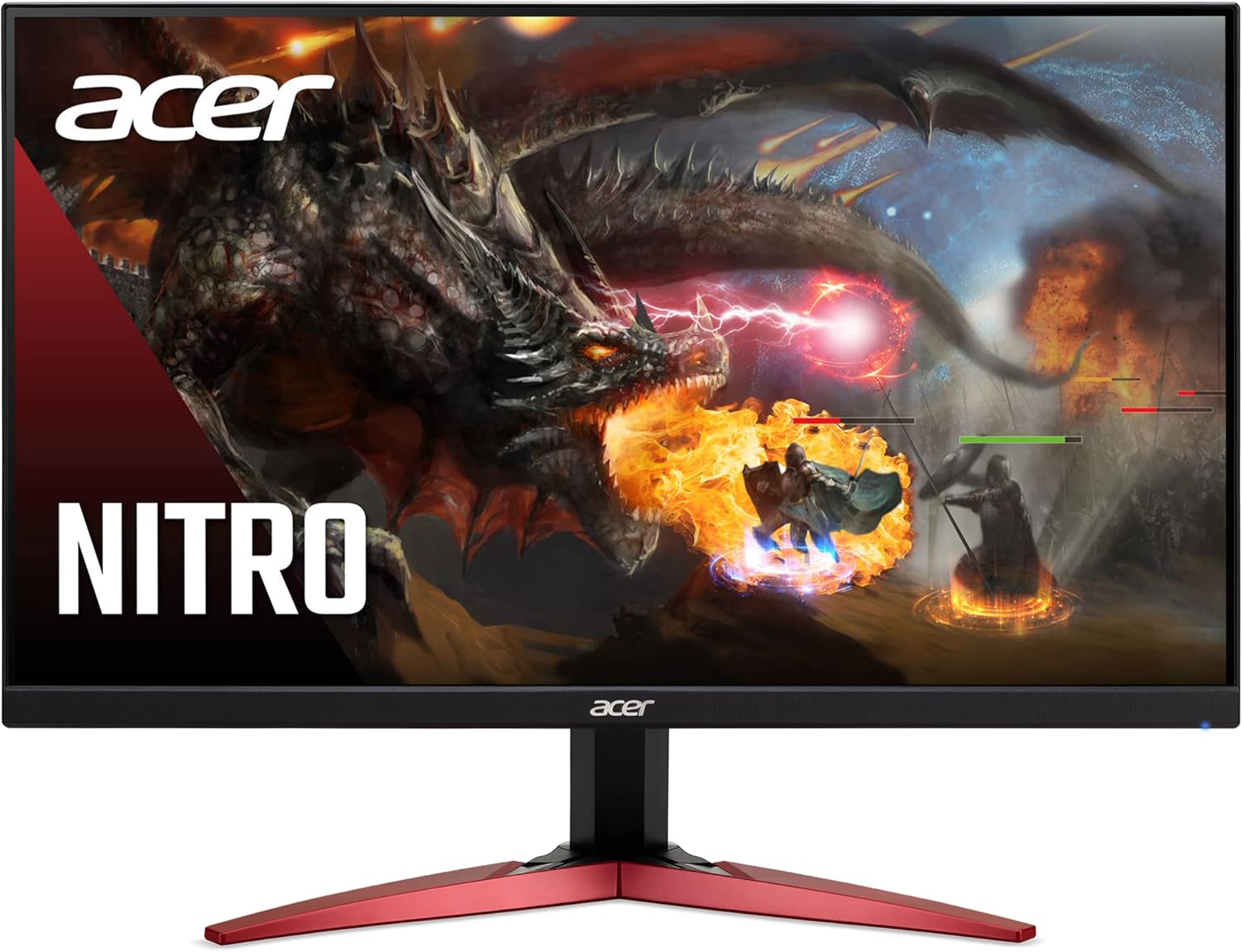
 AUTOMOTIVE2 months ago
AUTOMOTIVE2 months agoAcer Nitro KG241Y Sbiip 23.8” Monitor Review: An Ultra-Smooth, High-Performance, Reliable Powerhouse for Budget Gamers


